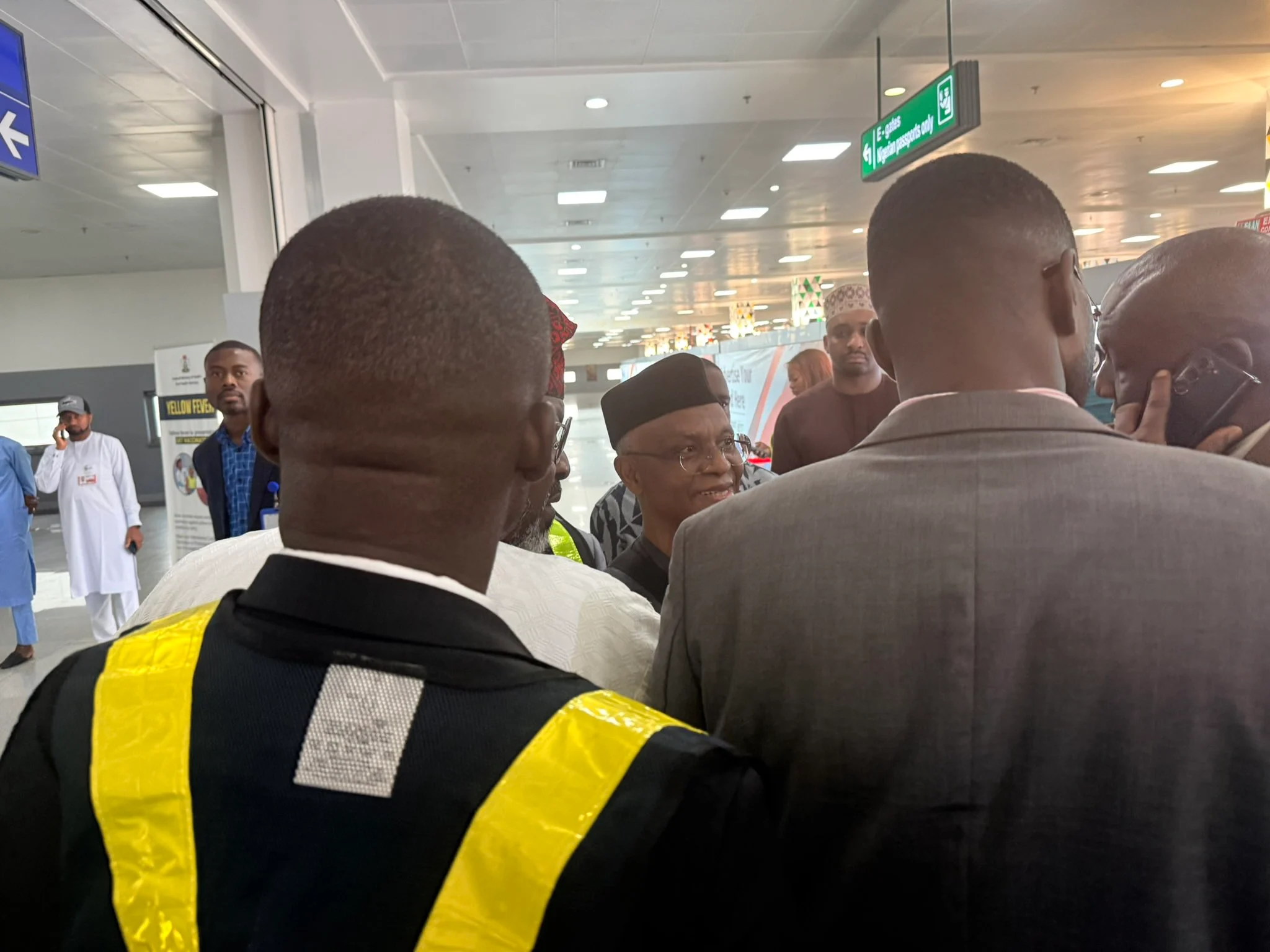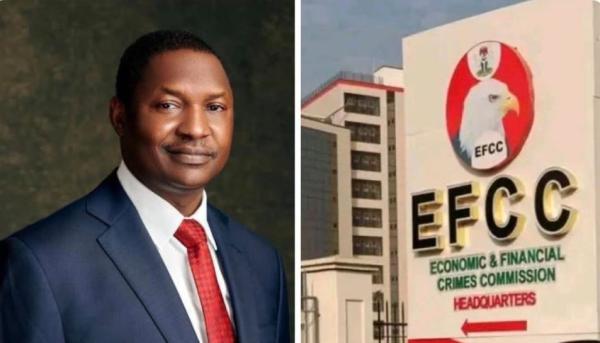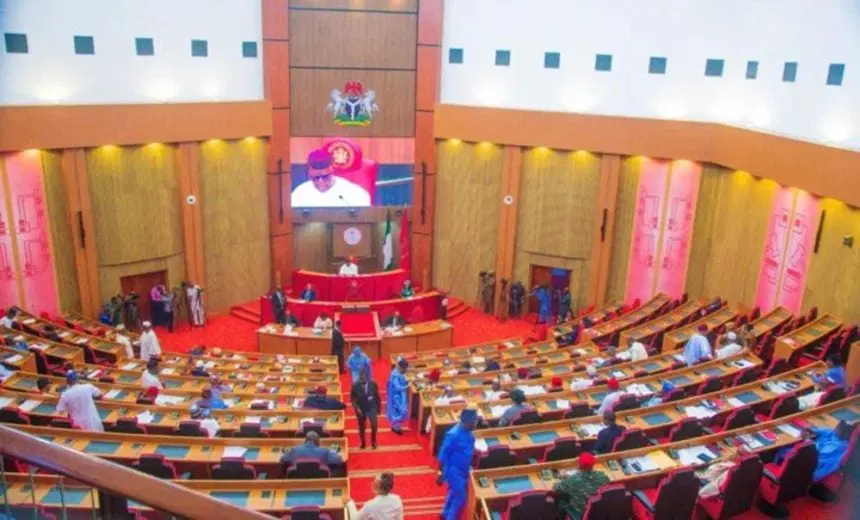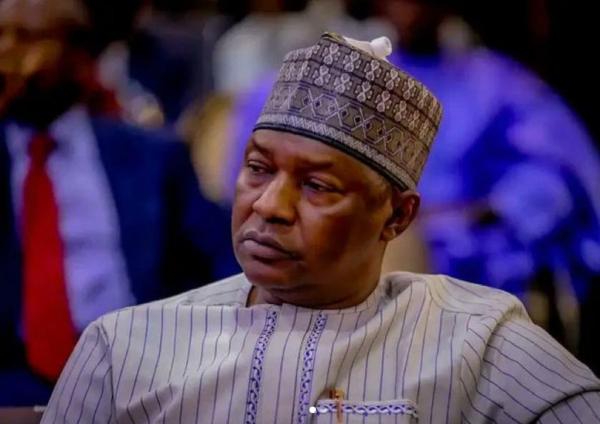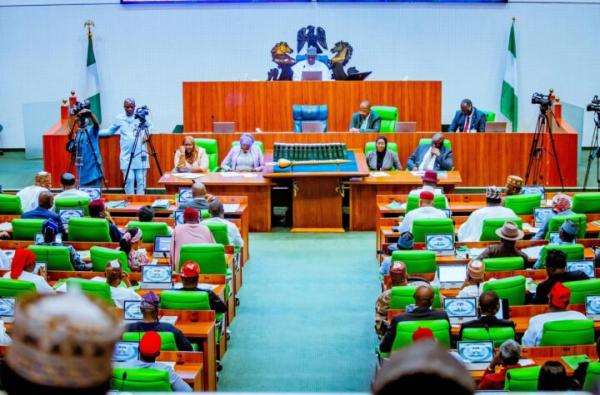
The House of Representatives has passed through Third Reading a bill seeking to increase the 2024 Appropriation from N28.7 trillion to N35.055 trillion.
The resolution was passed during the consideration and adoption of Clauses 1 to 13, at the Committee of Supply as recommended by the House Committee on Appropriation.
A breakdown of the proposed N35,055,536,770,218 for the 2024 fiscal year, showed that the sum of N1,742,786,788,150 is for Statutory Transfers; N8,270,960,606,831 is for Debt Service; N11,268,513,380,853 is for Recurrent Expenditure while the sum of N13,773,275,994,384 is for contribution to the Development Fund for Capital Expenditure for the year ending 31st December 2024.
In his lead debate, Abubakar Bichi who presented the harmonised joint Senate and House report, solicited for the adoption of the recommendations of the committee.
In a chat with Parliamentary Correspondents, Bichi said, “As you can see, today we have passed 6.2 trillion by Mr President, budget of renewed hope, 3.2 trillion capital, while about 3 trillion will go to the current. And as I said last time, this is a very important and critical road infrastructure that Mr. President wants to actualize.
“You know, they have covered about 21 states. One section with Lagos-Calabar, as you are all aware, covers about 9 states, which is about 700-kilometer road projects. Also, Sokoto-Badagry is very critical and important, it covers about 6 to 7 states. And that project is also important, it’s covered about 1,000 kilometres. We have another one all the way from Ebonyi, all the way from Abuja, from the Trans-Saharan section. Now it’s about a 400-kilometer road project.
“Of course, we need some funding to execute this kind of important project. It also has these rail lines, which are all the way from Abuja, Katsina, Kaduna to Kano, and from Katsina to Maradi. All of these critical projects, Mr. President wants to actualize it. They are called legacy projects. That’s why we are calling a renewed hope budget.”
While assuring that the Parliament will ensure that the budget is fully implemented, Bichi said: “We engaged both the Minister of Budget and the implementation agencies – Minister of Transport, Minister of Works, and Minister of Water Resources. We had an engagement with them. Their promise was that as long as we pass this budget, the implementation will be fully 100%.
“We had engagements with the Minister of Budget Planning, he confirmed that the funding is there and the project will commence. Let’s see from now until the end of the year.”
While responding to questions on the adequacy of the N3 trillion approved for the new national minimum wage, Hon. Bichi who answered in affirmative, said: “Absolutely, we did our calculations. We got the data from the Accountant General’s office before we applied this figure.
“So, we know the money is enough from now to December 31st to take care of that 70,000. Actually, it’s enough. Nigeria should be expecting dividends of democracy. Is that what you’re assuring? Yes, 100%.”
Also at plenary, the House passed through Third Reading a bill seeking to amend the National Minimum Wage Act 2019 and re-enact the National Minimum Wage bill, 2024.
The proposed legislation, sponsored by Majority Leader, Hon. Julius Ihonvbere, seeks to increase the national minimum wage from N30,000 to N70,000 as well as reduce the review period from five to three years.
In his lead debate, Hon. Ihonvbere argued that the current minimum wage of N30,000 is no longer sufficient due to the rising cost of living.
The move to increase the national minimum wage comes as the country grapples with economic challenges, including high inflation and a proposed nationwide protest over the cost of living.
The Executive bill passed through Third Reading after it was considered and at the Committee of the Whole.
The call for the inclusion of domestic servants in the National Minimum Wage scheme was spearheaded by Senator Osita Izunaso (APC Imo West), during his remarks at the public hearing.
“As a member of this committee, I feel strongly that part of the provisions to be included in this bill is to include the domestic workers, housemaid or servants, in the proposed N70,000 national minimum wage law. As N70,000 is planned to be the lowest wage for the lowest public workers, so should be the case for the least domestic workers.
We will put it in the bill for implementation by all employers.” he said














